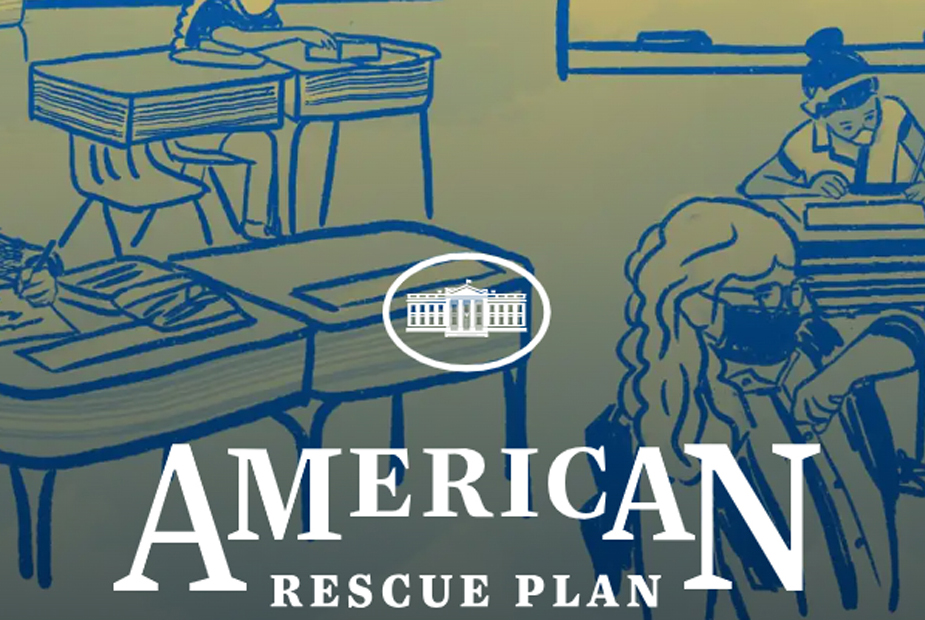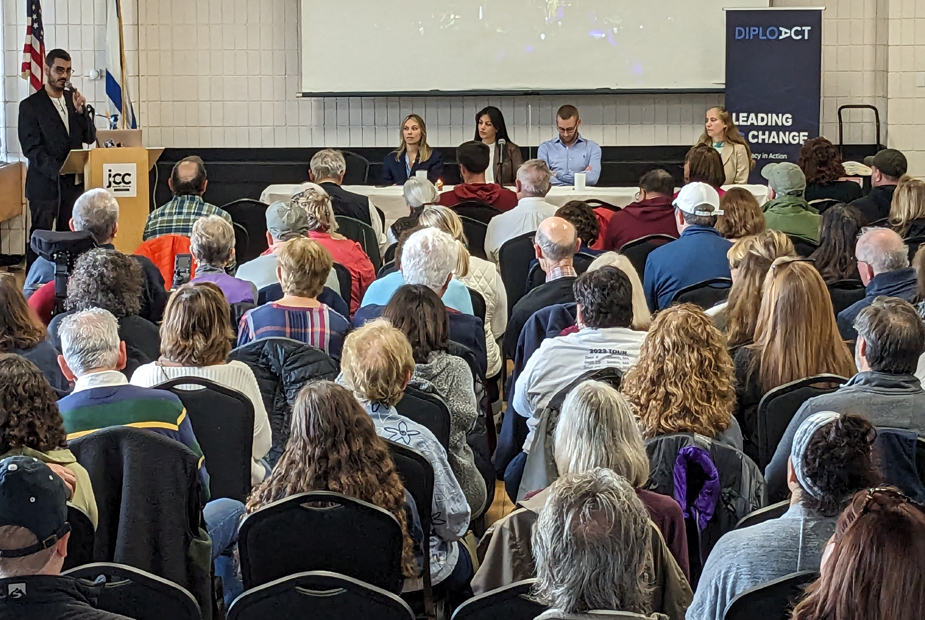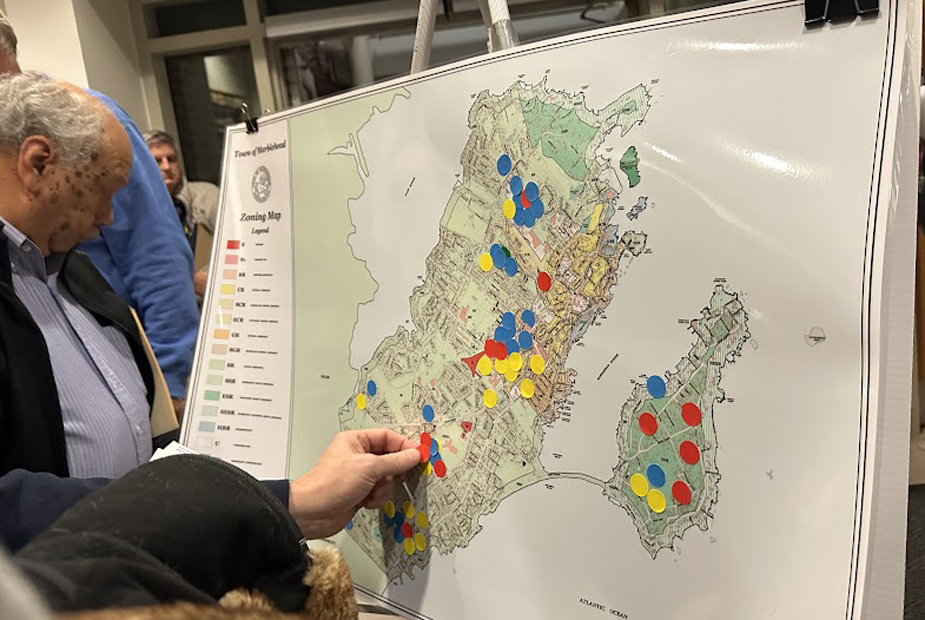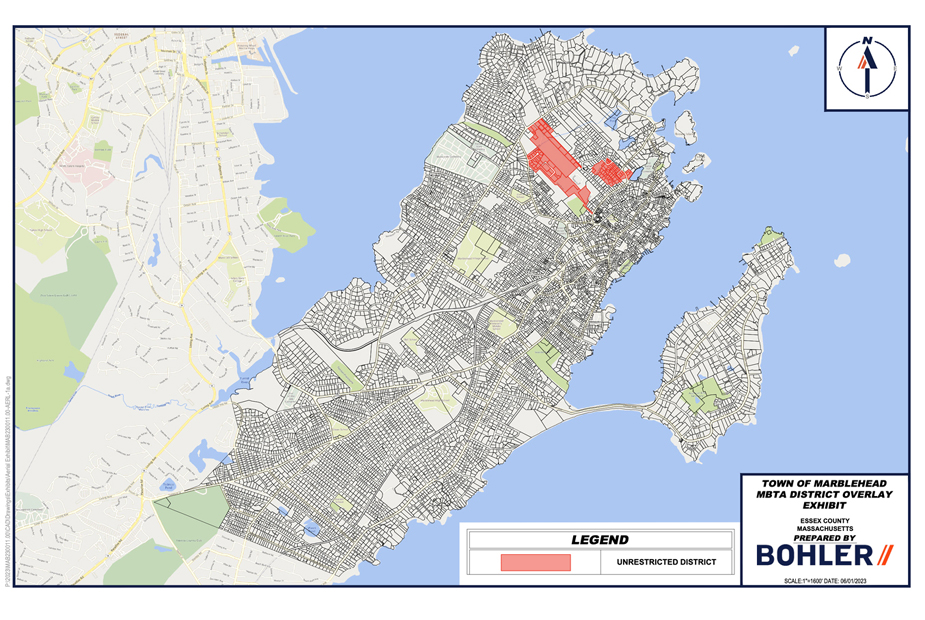ARPA Update: How Has the $6.1 Million Been Spent?
The American Rescue Plan Act (ARPA) was approved by the federal government in March 2021 to help states, towns, and individuals recover from the effects of the Covid pandemic. As part of this plan, Marblehead was bestowed a total of approximately $6.1 million, of which almost $5.4 million had been distributed as of a report released September 25, 2023.
How are ARPA funding requests evaluated?
Marblehead’s ARPA fund disbursements are based on the recommendations of the ARPA Working Group (AWG) and must be approved by a vote of the Select Board. According to the town of Marblehead’s ARPA Spending Plan dated October 12, 2022, “ARPA funding will be used strategically to assist the Town and community to recover from the COVID-19 pandemic.” The plan goes on to specify that funds “are to be applied to non-recurring expenditures and one-time capital expenditures” and evaluated in order from highest to lowest priority as follows:
- Expenses for ongoing COVID-19 public health and safety
- Replenishing reserves
- Economic recovery programs and initiatives
- Investment in infrastructure
- Temporary operating deficits caused by COVID-19
How have funds been distributed thus far?
Based on the report provided to Marblehead Beacon by Town Administrator Thatcher Kezer, the largest request funded to date—totaling approximately $1.5 million—has been allotted to the repair and construction of the Marblehead rail trail, including trail improvements and upgrades to the two bridges near Lafayette Street on the Salem border.
The second largest distribution—totaling just under $1 million—has been earmarked for the town’s refueling tanks. During the November 16, 2022 Select Board meeting in which this expenditure was approved, Kezer explained that “all of the various departments that have rolling vehicles use our fueling station for fueling the vehicles, but the tanks in the systems we are using are at least 25 years old and have exceeded their useful life.” He went on to note that the tanks “barely passed the most recent inspection” and that this project was put through the scoring process based on the town’s ARPA spending priorities, and “it ranked up in the to-be-funded range.”
Several distributions from the ARPA fund totals have been targeted toward expenditures related to information technology, including $500,000 for a new fiber optic network and another approximately $100,000 for network equipment and upgrades.
Slightly less than $300,000 in ARPA funds have been allocated in the public health category, with $200,000 granted to the Board of Health for mental health services and the remainder used for COVID testing supplies and other safety equipment.
Another segment—approximately $580,000—was targeted for the town’s general fund to cover loss of revenue due to Covid.
Of the remaining funds, approximately $860,000 had been granted for school-related expenditures as of the September 25 report. This includes $400,000 for a new English Language Arts curriculum, $75,000 for after-school programming, $20,000 for summer programming, $73,000 for technology upgrades, and $27,000 for science equipment.
In addition, this total includes two ARPA-funded line items that are being allocated on a fifty/fifty basis between the town and the schools. The first—at approximately $230,000 for each department—is for a new cloud-based financial management system. The second—at approximately $33,000 each—is to hire a firm to remap the chart of accounts used to organize and record financial expenditures.
It appears that the total amount allocated as “school-related” recently increased by approximately $200,000 with the addition of funds necessary to address a mistake in the capital budget approved during the 2023 Town Meeting. This would bring the overall school total to approximately $1.06 million.
In response to a request for further information, Kezer clarified that "we are using $202,890 of the $584,142 for the Replenish Reserve ARPA Funds to cover the capital shortfall for the school project. The Replenish Reserve ARPA Funds is an allocation of ARPA funds, following a state formula, to make up for reduced revenues from COVID. We are using that allocation to cover shortfalls and change orders in other approved projects."
What issues have arisen with regard to fund distribution?
The distribution of the ARPA funds has not been without controversy.
The $200,000 allotment given to the Board of Health for addressing mental health needs, for example, led to a heated conversation at a Select Board meeting late last year. At that meeting Erin Noonan questioned whether the Board had intended to award the funds directly to the Marblehead Counseling Center to provide counseling services rather than to the Board of Health, which would then have broad discretion as to how the funds were used. Moses Grader—serving as Select Board Chair at that time—characterized Noonan’s questions as “embarrassing.” He later apologized, but still denied Noonan’s request to join the committee tasked with allocating funds. He noted that “everyone wants to be on the AWG with so much money at stake. But it is up to the Town Administrator, who is directly accountable to the [Select Board], to choose the working group in order to surround himself with the best advice and professional knowledge in the Town to get the work done.”
The make-up of the Select Board has since changed, with the defeat of Jackie Belf-Becker by Bret Murray in the June 2023 town election. Both Grader and Noonan retained their seats, though Noonan took over from Grader as the Select Board chair. Noonan recently told Marblehead Beacon that Grader has remained the Select Board representative in the ARPA Working Group, explaining that “the process is almost over and he has been involved in the metrics/algorithm that the group has been using.” Kezer confirmed on October 2 that the “ARPA workgroup is Moses Grader, [Town Planner] Becky Curran, [Director of Public Health] Andrew Petty, [Finance Director] Aleesha Benjamin and [Acting Superintendent of Schools] Michelle Cresta.” Kezer noted that Cresta recently replaced John Buckey, who served as superintendent prior to reaching a resignation agreement with the School Committee over the summer.
The ARPA funds have been a frequent topic at recent School Committee meetings. School Committee member Alison Taylor has expressed frustration with what she describes as the lack of transparency involved in the funds distribution process and has also noted her concern that—while the schools represent over half of the overall town budget—they have not received a proportional allotment of the $6.1 million available in ARPA funding.
Thus far, the amount allocated to the schools is less than 20 percent of the overall total, even if the school-related amount includes the $200,000 to cover the capital expenditure discrepancy as well as approximately $265,000 for the finance-related expenses split 50/50 between the town and the schools. If these line-items are excluded, the portion of the ARPA funds allocated directly to school-based needs is about ten percent.
Taylor, in referencing these allocations, acknowledged that “conceptually having a better payroll makes things more effective and efficient and that affects the children certainly.” She also noted, however, that these were not requests made specifically by the schools to address student needs. “It’s not a librarian. It’s not freshman sports. It’s not a science teacher. It’s not a language teacher,” she said, and “I think we should also be very clear that that’s not money that was given to the schools.”
Taylor also questioned the policy by which half of the financial expenditures are being considered school-related expenses. “If we’re going to say that schools are 60 percent of the budget,” she said, “then we should be using that theory in a lot of other places, not just when you need to take the money.”
Taylor told Marblehead Beacon that she and Cresta are planning to meet this week with town representatives including Kezer and Benjamin to discuss the ARPA fund distributions in more detail.
At the September 21 School Committee meeting, Taylor reiterated her commitment to bring the information she learns into a more public forum. “I think it should all be out in the public and should be far more transparent,” she said. “Rest assured, I will continue to advocate…for the schools and for our students for this money. We were hoping to get a list of what’s been requested and what’s been denied so we can look through that and provide a high level of detail back to the public.”
What ARPA requests have been denied?
From the original total of approximately $6.1 million, approximately $785,000 in ARPA funds remained to be distributed as of the most recent available report. The requests to date that have not been funded total just over $13.6 million.
For the schools, unfunded requests include approximately $63,000 for professional development, $700,000 for HVAC repairs to school buildings, $250,000 for IT upgrades, $81,000 for textbooks, and $65,000 for a school nurse plus several additional smaller requests.
In other areas, the largest unfunded requests include: $1.5 million to purchase the Bank of America building to add to downtown parking stock, $1.2 million for Naugus Avenue water main upgrades, $800,000 for adaptive strategies surrounding Marblehead ocean and harbor front areas, $750,000 to provide a local shuttle service to popular locations, $400,000 to electrify school buses, and $400,000 to upgrade street crossings associated with the rail trail.
Editor's Note: This article has been updated to include a quote from Thatcher Kezer about the school-related capital project shortfall and the fact that it is being funded from the $580,000 loss of revenue line item. His response was received after publication time.








